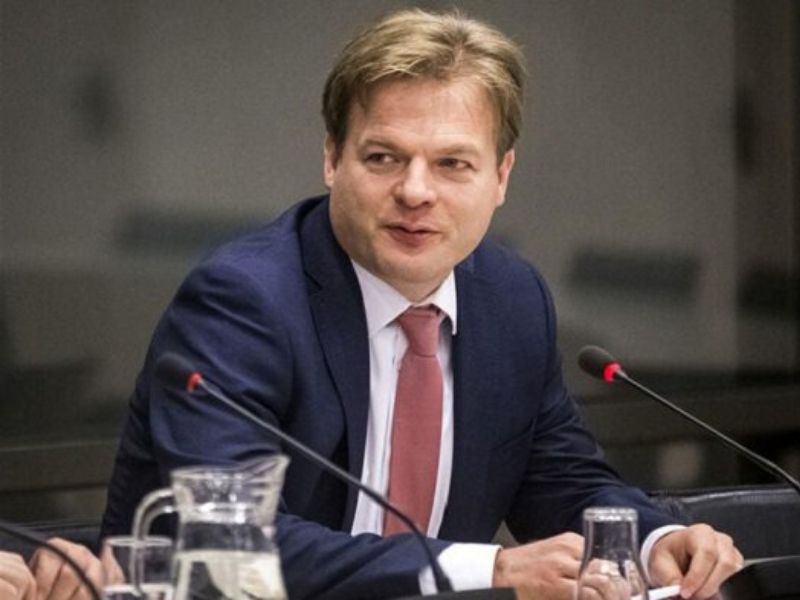Dutch MP Pieter Omtzigt was instrumental in uncovering the tax fraud scandal that ultimately forced Mark Rutte, the Dutch prime minister, and his Cabinet to resign on 15 January.
Omtzigt is a member of the Christian Democratic Appeal (CDA) in The Netherlands and of the European People’s Party (EPP) at European level. In Malta, we know him primarily for his role as the special rapporteur of the Parliamentary Assembly of the Council of Europe on the assassination of Daphne Caruana Galizia, where he fought tirelessly for the holding of a public inquiry into the journalist’s assassination, and for monitoring of the rule of law in Malta.
Over the last weeks, he has featured prominently in Dutch and international media as part of the campaign for justice for those families that have been wrongly accused of tax fraud by the Dutch tax authority.
Addressing injustice
Childcare in the Netherlands is private, but the tax authority subsidises parents to help them pay the fees, depending on their income and the hours the children spend in childcare facilities. In 2013, after it was discovered that Bulgarian scammers were collecting payments, the laws to fight tax fraud became increasingly strict.
The new laws gave more power to the tax authority to pursue cheaters and cover the costs with the funds it confiscated. It was not long before parents discovered that not only were their benefits being cut off, but they were being asked to repay everything they had ever received.
When parents tried to prove that they had applied for and received benefits correctly, the authorities did not respond and without the authorities providing evidence of wrongdoing, the parents could not appeal the decision.
Without childcare, many parents were forced to give up their jobs. Those who didn’t repay fast enough received further fines, driving many to financial ruin. In all, around 20,000 parents were accused of defrauding the Dutch government. Moreover, 11,000 of these families were also marked as ‘fraud risks’ as a result of an algorithm used by the tax service that targeted parents with dual nationality.
Gisteren bij het debat het aftreden van het kabinet en kinderopvangtoeslagschandaal heb ik dit betoog gehouden over waar de systemen van ons land vastlopen, over het gebrek aan macht en tegenmacht. En over de desastreuze gevolgen van slechte informatie: https://t.co/skpBsaZzsp
— Pieter Omtzigt (@PieterOmtzigt) January 20, 2021
A 2017 report by the Dutch Ombudsman had criticised the authorities for mistreating parents but this did nothing to stop the seizing of benefits. This was also the year when one of the lawyers representing a number of families contacted Omtzigt about the matter. Parliamentary investigations received little, often incomplete, information from the ministries, with large parts of text redacted.
When asked by The Shift what was the biggest challenge faced during his investigations, Omtzigt replied that it was “the total reluctance of the government to provide information”.
In 2019, the Dutch government acknowledged it was at fault and set aside an estimated €1.3 billion in compensation, but it was the parliamentary report in December 2020 that described the tax authorities’ treatment of its citizens as “an unheard-of injustice” that finally prompted the Cabinet’s resignation.
The right thing to do, no matter where you are
Omtzigt has now directed his efforts to ensure that the families affected by the tax authorities’ errors receive adequate and timely compensation. He also told The Shift referring to the Dutch government: “The parents have still not been helped. We are pushing and we need constitutional reform to have more checks and balances”.
Omtzigt has been a harsh critic of the Maltese government on a number of issues, starting from the concerns he raised about the proposed inquiry into the assassination of Daphne Caruana Galizia that were announced by the Maltese government in 2019, all the way to his follow up report in December 2020 on Malta’s implementation of PACE recommendations on ensuring justice for Caruana Galizia and strengthening the rule of law, where he described Malta’s efforts as “fundamentally unsatisfactory, with no final results”.
To counter his criticisms and concerns, government authorities in Malta sought to undermine his credibility. On 30 September 2019, the Maltese government first issued a brief statement in Maltese dredging up a controversy Omtzigt was involved in back in 2017. The Justice Minister at the time, Owen Bonnici, echoed the sentiments of disgraced former Prime Minister Joseph Muscat, labelling Omtzigt as partisan because he formed part of the EPP (the PN’s political group) and in October 2019, his Wikipedia page was manipulated to say that he paid Russia for false information – the change was made from an IP address of a Maltese ministry.
Omtzigt remained undeterred throughout his mandate as special rapporteur and as his current work shows that when it comes to accountability and ensuring justice for those wronged, he appears to make no distinction whether this is abroad or on his home turf.













Where would we be without Pieter Omtzigt? Europe and especially the Netherlands are in need of an honest and transparent system in order to improve the systems within Europe. Thank you Pieter for your endless effort to make it a little better !
In Malta, the PL-trolls have no idea who he really is, he will beat the hell out of them.
Malta was extremely lucky that the CoE put Pieter Omtzigt on its case.